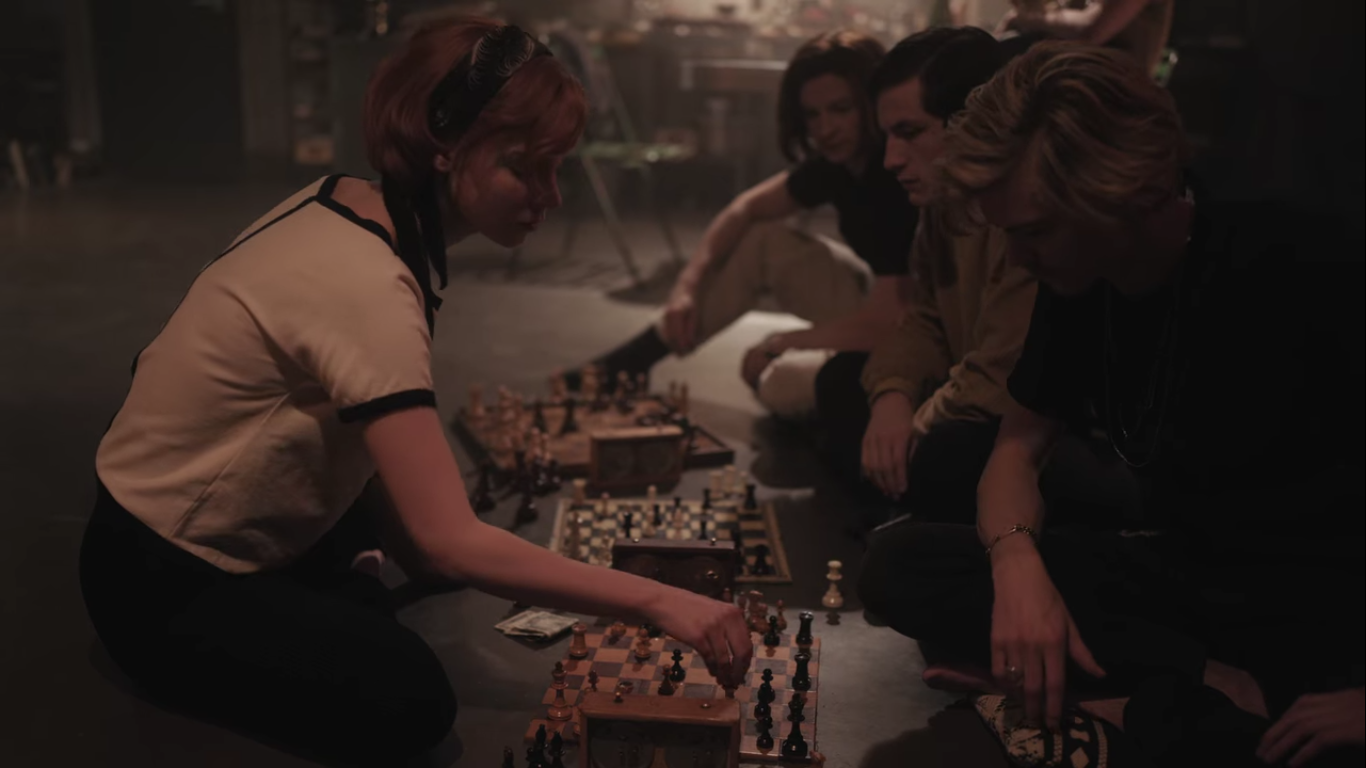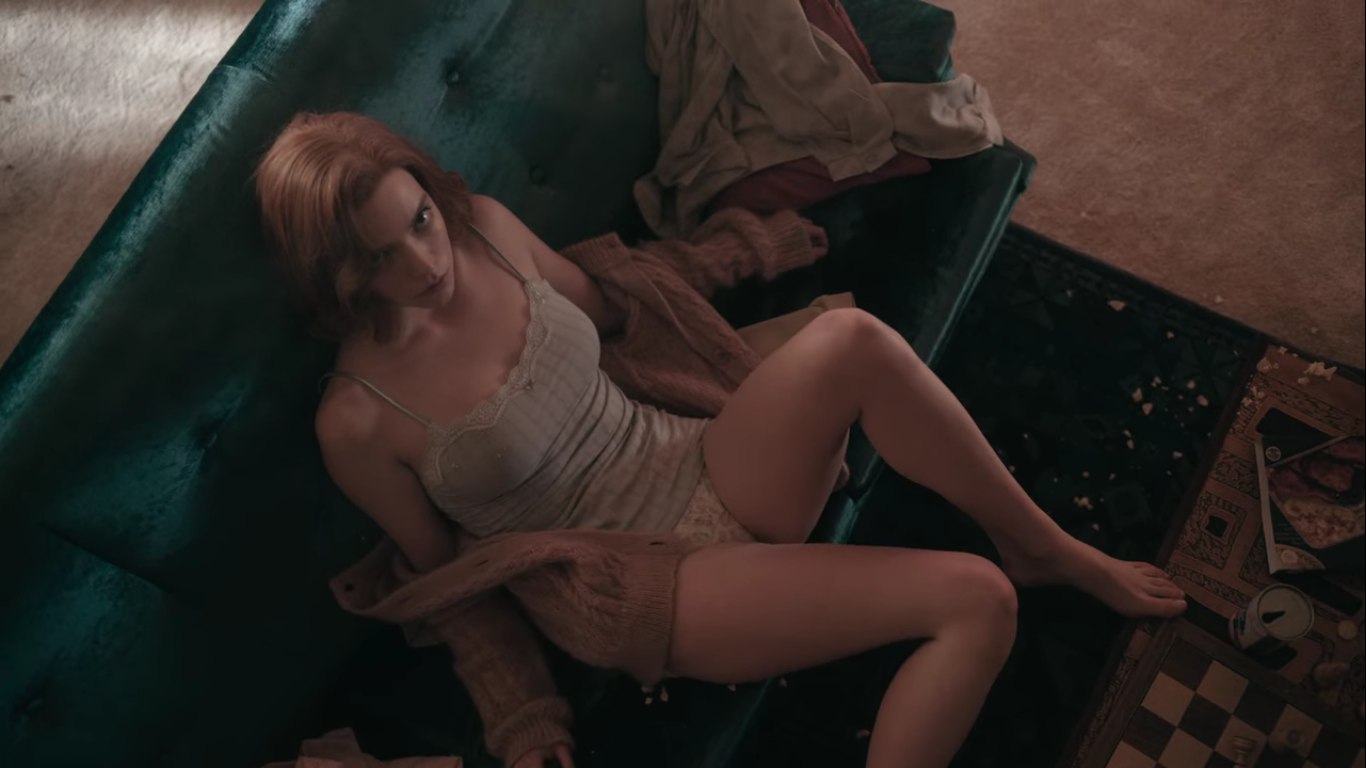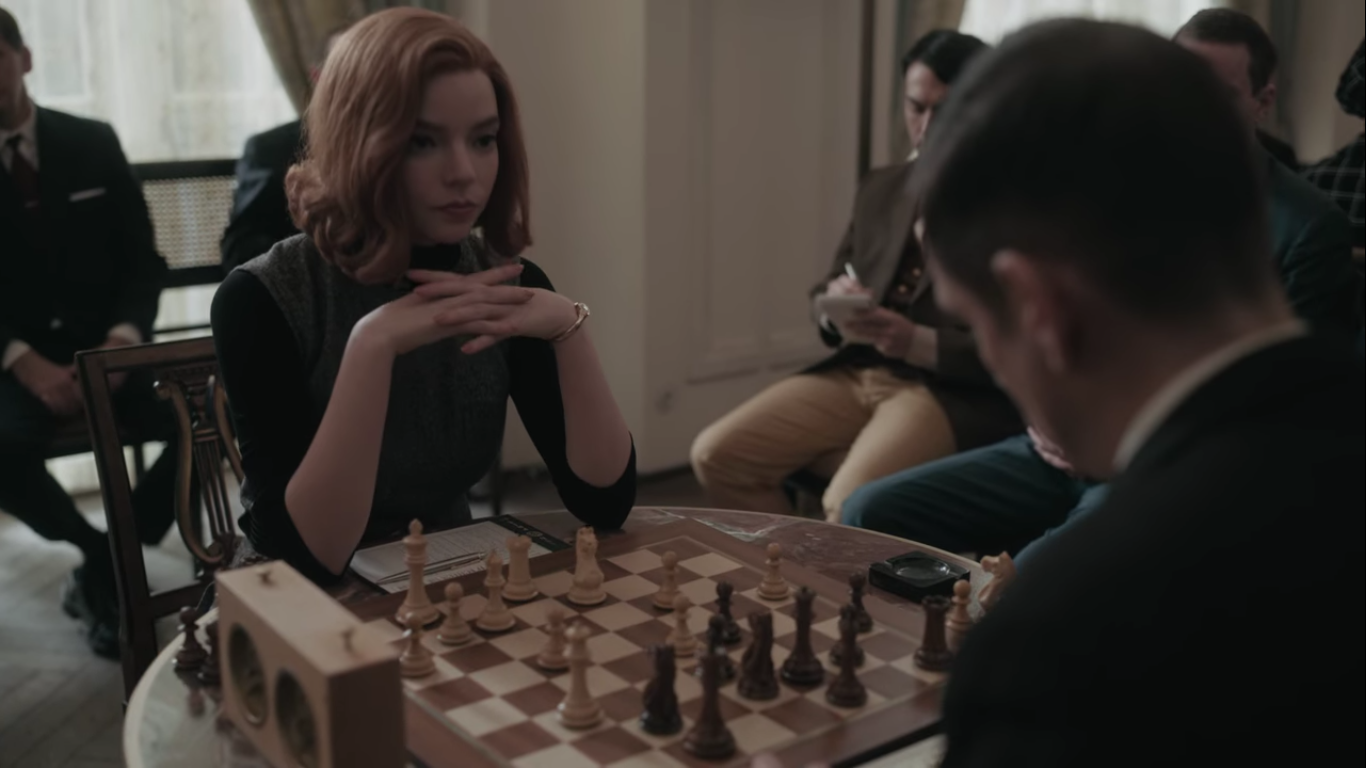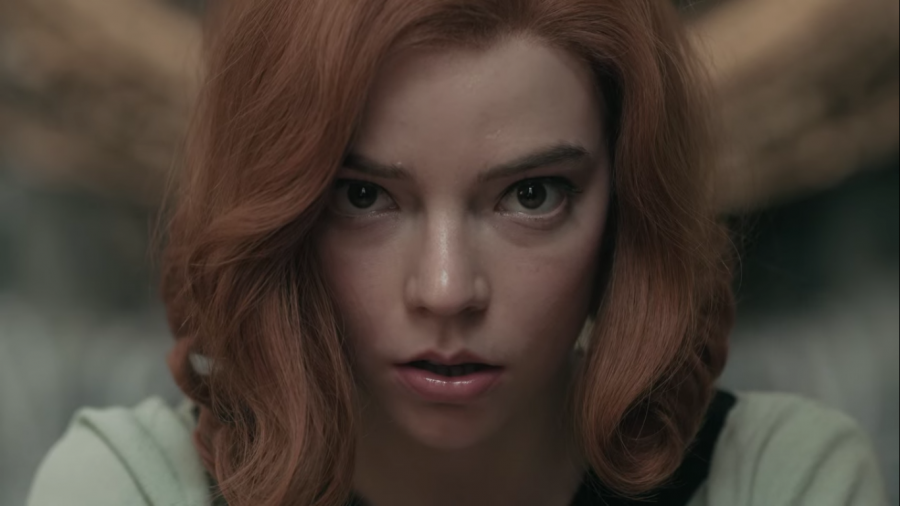The Queen’s Gambit Review
The Queen’s Gambit, Netflix’s latest drama mini series, has cultivated a devoted and loyal audience ever since it dropped in October of 2020. Based off of the book by Walter Tevis (which is dedicated as a tribute to “brainy women”), the series is set during the 1960s amid the Cold War and follows the rise of troubled orphan and chess prodigy Beth Harmon as she navigates the world of competitive chess, while also battling her demons.
While searching for new shows to watch, I happened upon The Queen’s Gambit, and decided to take a chance on it. Little did I know that I would fall in love with this series as early as the first episode. The production, themes, symbolism, and the characters had me hooked from the beginning, ultimately solidifying this show as one of my favorites and is definitely in my opinion, one of the best shows that came out during 2020.
Addiction and genius meet in this brilliant drama series. Beth’s introduction to chess while also coping with her trauma by means of self-medicating was raw and intense. However, Beth’s character was beautifully written for more reasons than just being a chess prodigy battling her demons—Beth deconstructs the “manic pixie dream girl” trope (coined by film critic Nathan Rabin) commonly placed on lead female characters. According to Studiobinder.com, the manic pixie dream girl is a “type of female character often depicted as whimsical, quirky, sometimes eccentric, fantasy women who saves the male protagonist from himself.” It is clear from the start Beth’s lack of tact combined with her awkwardness at times doesn’t bode well for relationships; her character was emphasized as one that was better off alone, and for good reason. Throughout the series, most of the men in Beth’s life and the few that she had romantic relationships with treated her like she was some fantasy dream woman that they need to possess. Beth is a break from the manic pixie dream girl trope, but I appreciate how she embraces her femininity while not shying away from what’s considered masculine, such as the male dominated sport of chess. Her character is unique in that she never takes a fierce and aggressive approach to counter the stereotypes and expectations of her by becoming the antithesis. She’s human. Her flaws, struggles, and intense emotions were evident throughout the series and most importantly, she was never portrayed as someone who’s invincible. That’s exactly what makes her so relatable and lovable. Except for her skills as a chess prodigy, Beth could be any one of us.

(Photo by Daily Express )
Speaking on Ellen, Anya Taylor-Joy (the actress who mostly portrayed Beth) stated that she “loved [Beth’s character] immediately and that she “connected with this woman [and] wanted to tell her story.” Her portrayal of Beth’s character was perfection and she managed to capture the essence of Beth early on. She was absolutely mesmerizing on screen with her large, doe-like eyes that were curious and always analyzing a situation, and her fluid and smooth motions. Her looks are dollike yet deceptive, for she is like a shark on the prowl for blood when playing chess.
The actors and production took on the task of telling Beth’s story while also staying true to the accuracy of all of the chess games she plays. Bruce Pandolfini and Gary Kaparov, chess expert and chess grandmaster (grandmasters are players who possess one of the highest titles in chess and have expert skill), respectively, were brought in to coach the actors and give their adept advice on how to film the actors and actresses playing the game while also preserving the accuracy of each move. Netflix went as far as to issue a statement to critics, assuring them that “if a chess pro sat down to watch the series, they wouldn’t be taken out of the story because of the inaccuracy of any moves.”

Additionally, some of the darker themes in this series ‒such as battling addiction‒were handled maturely and addressed respectfully. Beth’s character wasn’t painted in a stereotypical way due to how she used substances as a way to cope with her trauma. She was never illustrated as a “deadbeat” or a character who is incapable of accomplishing anything due to her addiction. All of Beth’s downward spirals were raw, emotional, heartbreaking and difficult to watch at times. She is a character that a viewer can root for but also fear for. Considering the fact that the series rolled out around the time the pandemic hit and addiction and overdose rates rose, it wouldn’t be difficult for viewers to empathize with Beth’s struggle as she battles her demons.

It was interesting watching Beth navigate the male dominated sport of chess, especially during the 60s, a time where women were believed to be incapable of doing tasks other than the traditional roles expected of them. She showed herself to be a true feminist who never cared about being the opposite sex or trying to prove herself in a male dominated game. She simply wanted to play chess and knew her talent would speak for itself. I loved how the evolution of her wardrobe and style was an extension of her and how it was clear that Beth’s feminine qualities don’t undermine her strength as a woman. The outfits chosen for Beth’s character were strategic, and displayed that Beth caring about the way she dressed and looked doesn’t make her stupid or shallow. Wardrobe aside, every aspect of the show was so incredibly detailed. I truly felt as though I was transported to the 60s with the decor, the acting, and the style of all of the characters.

The symbolism and parallels interwoven throughout the show contributed to its engagement. Beth’s story starts in Lexington, Kentucky but I loved how the current events and the political climate at the time had its effects on her. According to Chess.com, 43% of Russian citizens play chess, and that percentage was even higher during the Cold War, which was also occurring during the time period the series took place in. The Soviets viewed chess as a game that embodied their revolutionary ideals due to how it is a game of skill. It was so fascinating how throughout the show, chess had so much depth and extended to rivalries, feuds, and politics.
As a person who does not play chess and knows next to nothing about the game, I can confidently say that the series was still very enjoyable to watch and that a viewer doesn’t need to understand the game or how to play to enjoy the show. I never thought I’d say this but The Queen’s Gambit opened my eyes to the world of chess and I find it fascinating. Chess is like a war to disarm your opponent on a few tiles and ultimately conquer. Beth’s story ended perfectly with its emotionally satisfying and symbolic ending. The Queen’s Gambit will go down as my favorite show. It was absolute perfection and beautifully written with all of its mature and complex themes. I was near tears for Beth at times and was in awe of her character depth and growth. Viewers are bound to be attached to her and the ups and downs of her journey. The Queen’s Gambit is a limited series, yet managed to be a complete story in just seven episodes.
Watch The Queen’s Gambit on Netflix.












malaika • Mar 8, 2021 at 9:17 am
what an amazing article!! i’ve never heard about this show, but it seems absolutely amazing. i’m definitely going to try to watch it over my spring break. i find it difficult to find shows with good themes/morales, so thank you for this recommendation! beth also seems like a dope female character, i like her already.